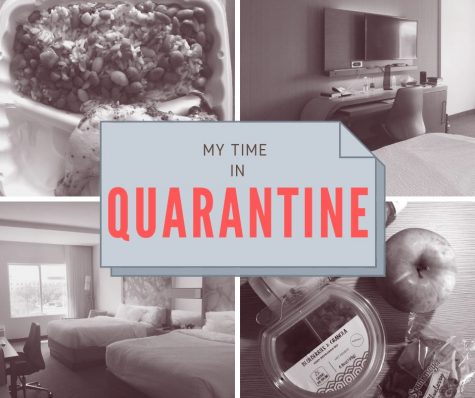SKEPTICAL SCIENCE SUNDAY: Organic Farming
November 19, 2017
If you’ve been to a grocery store recently, you’ve probably seen a product labeled “organic.” It was likely more expensive than equivalent products, and it might have boasted a pretty green label or a picture of a plant. It may also have said something like “Non-GMO” or even “Vegan.” These things get lumped together a lot, but few people fully understand what they mean.
Organic foods are not necessarily vegan, although most are non-GMO. “Organic” refers to a process of farming that avoids the use of artificial pesticides, growth hormones, fertilizers, and antibiotics, instead opting for “natural” alternatives. The goal of organic farming is to limit the amount of “artificial chemicals” used in farming that may contaminate the food supply. (Sidenote to remind everyone that everything in this world, including food, is chemicals. But I’ll get to that.)
The organic craze was driven in part by a now-removed video published by the Swedish Environmental Research Centre, with assistance from the Coop chain of organic grocery stores. The video cited the results of a study conducted on a Swedish family of five for three weeks. (Note the sample size!)
According to the researchers, after just three weeks of switching to an all-organic diet, the urine samples provided by the family members were completely free of pesticides. The conclusion, shared by nearlyevery news outlet that reported on the study, was that an organic diet could eliminate these harmful pesticides from the body and improve overall health.
Sounds great, right? The idea of eliminating harmful chemicals from our diets by switching to slightly more expensive organic options is an attractive one to many people, particularly those who can actually afford to buy organic. But in reality, switching to organic may not have the beneficial effects these researchers believed. For one thing, the pesticide levels measured for this family’s urine samples were only those pesticides used in conventional (non-organic) farming.
As Forbes writer Kavin Senapathy points out, “This is like assigning a group of people to drink screwdrivers…then having them swap the screwdrivers for rum and cola, and concluding that rum and cola drinks lead to zero vodka levels in the body.” While that’s technically correct, it doesn’t tell the full story. What about the pesticides used in organic farming? Organic does, in fact, use pesticides—it wouldn’t yield very many crops without them—and this study concludes nothing about the possible harm of those chemicals.
In reality, pesticides used in conventional farming have a negligible impact on the food we actually consume. The EPA thoroughly evaluates all pesticides before they become widely available, and safe levels are established for food quality control. If you’re eating USDA-approved fruits and vegetables – and you probably are – any pesticide residue left on them is not enough to harm you. The chemicals found in that family’s urine were simply a waste product properly filtered by the body’s natural defense system against toxins, and were likely not causing that family any harm.
While it’s clear that organic farming is largely unnecessary, some may wonder what the problem is. If rich people want to pay extra for organically made products, why shouldn’t they? In truth, while organic farming is generally harmless, implementing it on a large scale is grossly unsustainable. Organic farms have far lower yields than conventional farms, requiring more land to result in the same end product. In a world wracked by food shortages, this is a cause for concern. In order to create a sustainable farming infrastructure, our farms need to maximize yield, not panic over the presence of benign chemicals in our pesticides.
Once again, the popular mythology beloved by rich people and neo-hippies is not supported by science. Conventional farming is just fine for us, and the concept of sacrificing yields to eliminate pesticides is unnecessary and unsustainable. While the dedicated marketing of the organic food industry is impressive, its claims do not hold up to scientific scrutiny. If we as a society hope to sustain our ever-growing population and continue producing enough food for everyone, switching to organic is not the answer.















